
The Darrell McClain show
Independent media that won't reinforce tribalism. We have one Planet; nobody's leaving, so let’s reason together!! Darrell McClain is a Military veteran with an abnormal interest in politics, economics, religion, philosophy, science, and literature. He's the author of Faith and the Ballot: A Christian's Guide to Voting, Unity, and Witness in Divided Times. Darrell is a certified Counselor. He focuses primarily on relationships, grief, addiction, and PTSD. He was born and raised in Jacksonville, FL, and went to Edward H white High School, where he wrestled under Coach Jermy Smith and The Late Brian Gilbert. He was a team wrestling captain, District champion, and an NHSCA All-American in freestyle Wrestling. He received a wrestling scholarship from Waldorf University in Forest City, Iowa. After a short period, he decided he no longer wanted to cut weight, effectively ending his college wrestling journey. Darrell McClain is an Ordained Pastor under the Universal Life Church and remains in good standing, as well as a Minister with American Marriage Ministries. He's a Believer in The Doctrines of Grace, Also Known as Calvinism. He joined the United States Navy in 2008 and was A Master at Arms (military police officer). He was awarded several medals while on active duty, including an Expeditionary Combat Medal, a Global War on Terror Medal, a National Defense Medal, a Korean Defense Medal, and multiple Navy Achievement Medals. While in the Navy, he also served as the assistant wrestling coach at Robert E. Lee High School. He's a Black Belt in Brazilian Jiu-Jitsu under 6th-degree black belt Gustavo Machado. Darrell Trains At Gustavo Machado Norfolk under the 4th-degree black belt and Former Marine Professor Mark Sausser. He studied psychology at American Military University and criminal justice at ECPI University.
The Darrell McClain show
The Return of Trump: Unpacking America's Political Shift and Democratic Challenges
Is America's political landscape on the verge of a seismic shift? Join us on The Darrell McLean Show as we unravel the unexpected victory of Donald J. Trump, who has secured a second non-consecutive term as President of the United States. This echoes Grover Cleveland's achievement from the 19th century, challenging the media's narrative of a close race and putting a spotlight on the dramatic electoral dynamics. We explore the implications of Republican dominance in both the Senate and the House, dissect voter demographics, and question what this means for the future of both major parties.
As we navigate through the post-election atmosphere, the Democratic Party faces introspection and reckoning. Promises by the Biden administration, including student loan forgiveness and a $15 minimum wage, remain unfulfilled, and the internal challenges faced by key figures like Senators Kyrsten Sinema and Joe Manchin come under scrutiny. The episode delves into the party's struggle to connect with crucial voter groups and the polarized reactions to Trump's return to power. Through critical examination, we address the questions surrounding the Democrats' identity and strategy going forward.
America's political divide deepens with the contentious issue of abortion legislation at the forefront. We analyze the complex aftermath of the Supreme Court's Dobbs decision and pivotal state-level amendments, including Florida's Amendment 4. The conversation extends to border security and infrastructure maintenance, shedding light on the pressing need for effective policies in light of declining birth rates. This episode promises a comprehensive exploration of these urgent issues, offering insights that aim for a balanced, safer, and more prosperous future for the nation.
Welcome to the Darrell McLean Show. I'm your host, darrell McLean. Independent media that won't reinforce tribalism. We have one planet, nobody is leaving, and let us reason together.
Speaker 1:When Barack Obama won the presidency, there was a famous radio personality by the name of Rush Limbaugh who got in a firestorm of trouble because he uttered the words I hope that he fails. It was pointed out by people like WWE personality Jim Cornette that the presidency is like a pilot, and if the pilot doesn't successfully land the plane, then we are dead. In that same spirit, I would say that I wish that we would look at the president in the election of one, donald John Trump, and say that we wish the best for America and that we wish that he succeeds. Now let's get into some of this coverage. So it was an election night for the ages. It was clear and a very convincing win for the former president of the United States. Just remember we went into the 2024 national election being told that it was one of the closest races in all of presidential history. Polls, surveys, media, pundits everyone said the race was going to be close. There were indications coming from the Republican camp that they did not believe the race was going to be so close, but they did not offer any hard data for the public to consume. On the other hand, the media seemed to argue that there was a turn in momentum towards the Democratic ticket just in the last days and hours of the campaign, and it turns out nothing like that was actually happening at all. It was a huge night for the Republican ticket. It was a historic night for former President Donald J Trump. He became only the second man in American history to be elected to a second term as president in a discontinuous with his first term, thus making him both the 45th and the 47th president of the United States. Before you go looking up, the other president was Grover Cleveland, and that was way back in the 19th century, so let's just say it has not happened in a while.
Speaker 1:The election began as pretty much as it had been predicted, and thus you had several states, including the states of Georgia and North Carolina, that were among the seven so-called swing states that we all know would determine the election. Both of the candidates were aiming states that we all know what determined the election. Both of the candidates were aiming for the electoral college of 270, and it looks like the former president will exceed that, though the final count is not known, but what is known is that the predictions of extremely close were once again not correct. Now, a lot of people pointed out at the time and tried to warn us all, even as Poe's represented as instruments of a scientific measurement, that they are actually also a weapon of political warfare. Political warfare is particularly hot when it gets into the highest office in the land and the most powerful office in the world, and where the expectation gain plays into. Political analysis is one of the weapons of political warfare. But nonetheless, as we know, it wasn't close and we know it didn't take days, much less weeks, in order for the victory of Donald Trump to be understood basically in both parties, across the line, across media platforms and, frankly, among anyone who was watching their returns as they were coming in.
Speaker 1:You go back to those early states that were reporting, but Georgia and North Carolina took some time and perhaps it was enunciated by the fact that both were so much in the national spotlight in terms of the 2024 election. But patterns begin to develop pretty much early in the counts coming in throughout the night. Now, those patterns had to do with a couple of things. Number one the pattern, of course, comes down which the states on the map end up red, which ones end up blue. But the pattern is also detectable even before the state is red or blue, and that's because you can measure returns. The analytics are now incredibly deep. Both political parties have access to political returns, election returns, all kinds of demographic data. It became very clear that Donald Trump was showing the electoral strength basically all over the map beyond what had been demonstrated at 2020 election and, in some cases, beyond what he had demonstrated even in 2016.
Speaker 1:In 2016, donald Trump won the presidency, but he wanted an electoral college. This time, of course, he's going to win the case in the electoral college. He's going to win that count. That's determinative. But it's also important and historic that he also won the popular vote as well. Even as a little footnote here, there have been many people who have been pointing out to this election as demonstrating the strains of the electoral college system, and the fact that it worked this time will probably sustain that. It will continue to be used because a lot of people will say it works and it demonstrated it clearly last night. But last night was a big night as people were watching the returns partly out of shock of how clearly defined the race became so early.
Speaker 1:Of course, it's not just the presidency. We have several senate races, absolutely crucial races, and it looks like the republicans have won control not only the presidency, they have also won the Senate and they will be keeping the House, and so this is a big deal. So we also need to understand that we look at the presidential election, because it does dominate just about everything at the presidential election, because it does dominate just about everything. We also need to talk about the vote on some of the other issues, and I'm going to get to that in the end, and it's going to be kind of how I think we are winning an issue but lost at the same time, but lost at the same time so far.
Speaker 1:There was a poll that came out on the racial makeup and class of gender or so of people who voted for Republicans or Democrats. They had white men in this poll voted for Democrats at 39%, while they voted for Republicans at 59%. White women voted for Democrats at 47% and white women voted for Republicans at 52%. Black men voted for Democrats at 78% and black men voted for Republicans at 20%. Black women voted for Democrats at 92%, voted for Republicans at 20%. Black women voted for Democrats at 92% and black women voted for Republicans at 7%. Latino men voted for Democrats at 44% and Latino men voted for Republicans at 54%. Latino women voted for Republicans at 61% I'm sorry, voted for Democrats at 61%, republicans at 61%, I'm sorry, voted for Democrats at 61% and voted for Republicans at 37%. So what that means is just looking at the exit polls. Just looking at the exit polls, latino men came out in droves for Donald Trump and if the numbers keep trending in that direction, donald Trump could officially win all seven battleground states. Trump almost won both New Jersey and Illinois. He actually only lost both of those by five points.
Speaker 1:Now that is a very big deal because there was a lot of questions about black men and so on and so forth and whether they were going to support Kamala Harris. I was listening to MSNBC this morning. Like I predicted it had the words misogynistic had already been come out. Now, of course, you know it's kind of standard. I said if Kamala Harris lost, then it would be blamed on black men, primarily on black men, for hating black women, white men for hating women in general and, of course, third party candidates. And as we go through the weeks, you will hear that the Democratic Party will probably take this as a sign that they should not run a woman for president again, being that they lost with Hillary Clinton, who was a congresswoman and a secretary of state, and she lost. And then they ran Kamala Harris, who was the district attorney, a prosecuting attorney, a senator and a vice president, and they ran her and she lost. I think the Democratic Party is going to go back to running old white men for a very long time, old white men for a very long time. Now, of course, I think that there should be a deeper dive done on this and I would say this you cannot have your base of people be upset about the Israel and Palestinian issue and not address it.
Speaker 1:You cannot have a campaign or presidency where you promise student loan forgiveness and you don't deliver. You cannot have a presidency where it seems like everything you want to get passed all of a sudden, the parliamentarian seems to be running the White House and nothing gets done. You can't have a presidency where it seems like most of the legislation you want to get passed is blocked by two people in the Senate Kyrsten Sinema and Joe Manchin, is blocked by two people in the Senate, kristen Sinema and Joe Manchin. You cannot have a presidency where you promise a lot and deliver a little and then think that your base is going to turn out in droves for you. You promised the John Lewis Voting Rights Act. You didn't get it. And we can just go on and on and on about the promises that were made, the promises that were not kept, even when it comes to the Bernie Sanders wing of the Democratic Party. It was promised, when Bernie Sanders conceded, that they had now agreed on a federal $15 minimum wage and, as we both know, everybody listening to this show knows, as we both know, everybody listening to this show knows that the under the Biden administration, the federal minimum wage remained the same that it was, did not tick up. A state stepped in and kind of did their own thing. So you cannot have your base feeling like they have been ignored and are being ignored and still come out to vote for you.
Speaker 1:I was talking to a female voter who was leaning towards the Republicans and she asked about the previous Democratic president. Her exact words were Barack Obama and everybody wants to run on codifying Roe v Wade. Barack Obama and everybody wants to run on codifying Roe v Wade. She said Barack Obama had a super majority in the Congress and the Senate and he had the White House and at that time they had the courts. Why did the Democratic Party, if they cared about abortion rights, not codify it into federal law at that time? And I had to tell her. I said it's a very good point, and that is because even Ruth Bader Ginsburg said that Roe was decided incorrectly, and I think that that is the real answer, that they did not want to touch it. And then the cynical answer is it would be. They did not think they would have to touch it. It would be something they could have to run on forever.
Speaker 1:Now, of course, we can go back to recent history and talk about Trump gets in, the seats are filled and the rest is history. But I think the point that the young lady raised is still a salient one. You had a chance to codify this legislation into law, into law. You chose not to, and now you are dealing with the ramifications of that, of your policies, of your inaction. And Joe Biden promised a certain amount of things on the campaign trail and if the base feels like it was not delivered to, you cannot be upset if the base does not respond or did not respond.
Speaker 1:Also, I already know that there's going to be a lot of talk from people in buying land who are going to claim that if he would have stayed in the race, that he would won. That's neither here nor there. That ship has sailed and we cannot go back and see what would have happened. That ship has sailed and we cannot go back and see what would have happened. There is also going to be people who say if the Democratic Party, after Joe Biden stepped down, would have had a free and fair primary, then we would have had a better choice. Some people are pointing to somebody like Gavin Newsom. Some people are even saying if Tim Walz was at the head of the ticket, I've even heard some people say that the governor, shapiro from Pennsylvania, would have been a better choice.
Speaker 1:Again, neither here nor there. Everybody will. All the pundits will be saying everything they can say about why everybody lost. But I will say this To lose, and to lose by the Electoral College is one thing, but when you have somebody like Donald Trump, who not only won the Electoral College but won the popular vote and it's the first time a Republican has done that in a very long time. I think that cannot be ignored and I think Democrats and the Democratic Party has to do a real soul search to figure out why they are so unpopular, why they are so unpopular with white men, why they are so unpopular, why they are so unpopular with white men, why they are so unpopular with white women, why they are so unpopular with Latino men and the list goes on and on why working class voters no longer believe that they are the party of working class people and if they have roots they can get back to, they may need to get back to them. They have to ask themselves why did, after all those years of us being endorsed by unions like the Teamsters that they did not endorse, that the Firefighters Union did not endorse, and the list goes on and on. Now, when it comes to the figure that is Donald Trump, going through my timeline and seeing the reactions, I see that there are. You know it's very rare to find somebody in the middle, the middle of the road about what they think about Donald Trump. Feel for people who feel like that. There's some rights that they have maybe taken away. I would just appeal to them to think about the years when they dealt with Donald Trump as president and and asked themselves at least that time, you know, was anything? Did they lose anything? So on and so forth. Okay, and to hope and pray for the best and be vigilant, all right.
Speaker 1:When I got on X, formerly known as Twitter, there was some reactions that were already being garnered. There was some reactions that were already being garnered. Somebody said you know Kamala Harris pretending to be black. That long had to be exhausting. I had another reaction from someone who said Hispanics, a group of people that will likely suffer to most under the Trump regime, have given him their largest gains Unbelievable. I have another person who said women need to stop dating and having sex with men immediately, and I'm not even joking, are being dramatic in the slightest. I had another person that says, as a woman, I'm heartbroken for us all. And another person say white women did it again. White women tricked black women again. Had a person who said black people did their job. Trump gains were with Latinos were real. Trump is their guy. The end.
Speaker 1:Had somebody say no more Department of Education, that's done. Hope, you got a plan if your kids are in public school. And I had somebody say 45 from latinos while running on a campaign of massive mass deportation campaign. I just don't get it. Had somebody says hopefully he dies soon and then at God, you know, obviously hoping the president you know passes away of the incumbent. And then somebody said protect your family, create and stay in your own bubble. Limit your time on social media, especially on this app, on the internet overall. Be mindful of your mental health. Be safe out here for the next four years. Compartmentalize. This is the best you can. Don't digest this daily, every day, for the next four years.
Speaker 1:And somebody say voting against abortion why? Simultaneously complaining about your by simultaneously complaining about child support is pure comedy. Laugh out loud. And I have someone say I just seen a black man say I didn't vote for Trump. I voted against trans rights, I voted against LGBTQ people's rights, high inflation and a broken economy. Trying to hurt a small group of people, as a black person, definitely shows me that you don't want rights, you just want your privilege. I can't wait to see how this police immunity works out for you.
Speaker 1:Inwards. And there has someone say there's an inward out there excited because he thinks Trump's about to send his broke ass another check. I had somebody say he won a popular vote, meaning a lot of people were looking at you and lying in your face about voting against him. And I have somebody say he won with absolutely no plan, no policy. He won on hate and fear mongering. And that was just some of the messages that I received that I thought was worth going through.
Speaker 1:And so of course we have people that are excited and we have people that are fearful, and of course I'm just kind of sitting back and saying we cannot always have this thing work this way, where half of the country is just elated and has so much joy and hope when somebody's elected and the other half thinks it's the coming to an end and it's uh, so on and so forth. I made a kind of a joke about it and I just said you know, um said something like when I wake up, I'll be able to see people who didn't like america for the last few years all of a sudden pretending like they like it again, and I'll get to see people who like the America for all the few past few years all of a sudden don't like it again overnight. I didn't, of course, ask the question that I asked all my friends who think the last election was stolen. I just said look, you still have to ask me or deal with. My thing is that if the Democratic Party stole the 2020 election while they weren't in power, why were they able to steal the 2024 election while they are in power?
Speaker 1:I'm trying to get trying to trying to weed through some of these conspiracy theories right and, of course, when it comes to the money-making wheel of it, resistant liberals are going to make a lot of money over the next four years. As it was noted over the last period of the Trump presidency, the liberal establishment always makes more money while they are not in power versus when they ain't in power, because when they're not in power, all they have to do is protest, and it's actually very easy to run protests than it is to run a government and deliver to the voters. Now, the issue that I'm going to bring up is something that I think is everybody kind of knows what my pet peeve is, and that is this issue of abortion and campaigning on this issue, and we also need to look at the president's election, because it does dominate just about everything else, but today, when we talk about the votes on the abortion issue in the states and we look at the president's election. It is big as it is, as we think it's because the importance and the power that it has made often and I think, importantly centralized in the president of the United States, which is to say, I think this office is stronger than it was intended in our constitutional order, but the framers of the Constitution could not have envisioned a nation as big and as powerful and, as frankly, operating at the kind of speed with which the American government can operate. But the fact is that we're looking at the most powerful office in the world and a lot of people are very thankful that it is an elected office, and a lot of people are thankful for the clarity that the American people achieved last night through our constitutional system. That clarity is healthy for the Republic and I think this choice, in this case, winning with such a massive blowout was also healthy for the Republic, given the circumstances of a January 6th style thing happened Now.
Speaker 1:So I wanted to think about Kamala Harris in the notion of that she was an untested candidate. Remember that, even as she ran for the Democratic nomination in 2019, she exited the race before, frankly, even fighting at a single primary, even much less winning a single delegate vote and in this thing I think the mistake was she was basically handed the Democratic presidential nomination when President Joe Biden effectively was shown the door by his own party. Now it has become clear that the American people that Kamala Harris, that they did not want her to be president. Not enough, kamala Harris. They did not want her to be president not enough. It wasn't so clear in the polls, but it certainly was clear in the electoral results. It wasn't just the vice president's relatively experience and the fact that she was seen to have been taking, and also maybe a repudiation of the fact that she would not take firm positions at all. The American voters just did not buy it. You can count on the fact that the Democratic Party will be doing an autopsy on the race of 2024, and they will be doing a deep one to figure out how they can gain back some credibility with such a large swath of the American electorate.
Speaker 1:Now, when it comes to the future of what has been known as the pro-life movement, because Donald Trump was elected and I'm just going to go out and say I think the pro-life movement is in big trouble and I think the pro-abortion movement has gathered major momentum in at least eight states who had abortion on the ballot last night, who had abortion on the ballot last night. But at this point, I think the most important thing we can talk about is the future of the pro-life movement in the United States, because the pro-life movement and the fit of the unborn, the structure of American laws and the state constituencies on the issue of abortion it was on the line in about 10 states last night, in about 10 states last night and as it turns out, it looks like eight of them are big wins for the pro-abortion side of the argument. Two of them are wins for the pro-life movement. But we really need to take a closer look at why, especially when it comes to my home state of Florida, what was proposed? There was an amendment called Amendment 4, and it was a radically pro-abortion amendment. Florida has a ban on abortions after six weeks right now and that is seen as very conservative and a very conservative law, a very pro-life law, and a constitutional amendment proposed as Amendment 4 would have turned the Florida law into a very liberal state. It basically would have established abortion, at least up until the time of the fetus, would be declared viable as something as fundamental right and thus without restrictions. Now this was going to place Florida in a very pro-abortion category, whereas right now it is a very pro-life category. But it didn't pass. But when you look at the numbers, it did actually win majority. Why is that? Why is that? And that is actually because in Florida it looks like the vote is something like 57 percent versus 43 percent. Final numbers aren't yet in, but it's clear that even the pro amendment for forces have conceded they're not going to reach a 60 percent threshold, which was necessary for an amendment to pass the Florida Constitution. That's a win. Well, hold that thought. It's a giant win, even as we're looking at in, a win for the cause of the sanctity and the dignity of human life. I want to say that Florida Governor Ron DeSantis deserves a huge amount of credit for putting his own personal reputation on the line, becoming personally involved in arguing against Amendment 4, and, frankly, probably putting his own political future on the line. That was a rare act of political courage and an effective act that we may not see from a lot of people after this. The pro-life movement owes a very great deal to him, at least on Amendment 4.
Speaker 1:For the pro-life movement took place in the state of South Dakota. It was what was known as Amendment G. Again, it would have liberalized abortion rights, as they termed it in the state. 36.6% of the voters voted yes. Now that's not with all the votes in, but yes, with the votes available to us, as I'm recording right now, that's 36.6 yes and 63.4 percent no. It looks like all the numbers are at least going to have a solid enough that it's unlikely that Amendment G will go forward for a long time.
Speaker 1:In South Dakota Now, florida is a state with a very large population. South Dakota is a state with a very small population. That leaves eight other states. Now those states would include Arizona, missouri, nebraska, new York, colorado, montana and Nevada. Now I read all those states in order for you to understand that these included states that would be more liberal states than would be more conservative. States that would be more red, as a Republican in the states that would be more blue, as in Democratic. And I say that only in the order to underline the fact that we're in a very dangerous position.
Speaker 1:The pro movement is. The United States need to realize that we are in very big trouble, and I want to be clear about what that trouble is, and I want to be equally clear about the fact that we have to meet that with an even greater determination to speak up and contend for the unborn in the womb. So let's talk about why we're in such a difficult position and what all this means. It means that in 2022, when the Supreme Court handed down the decision of Dobbs reversing the rule, it turns out that many fewer Americans were actually pro-life, even as by many, by millions that indicated previously that they were pro-life in some way. It turns out that that was a very easy thing to do. It was easy to say you're a pro-life when the Supreme Court's Roe v Wade decision was in place and you didn't have to pay anything for the price of saying you're pro-life.
Speaker 1:But when the social capital begins to come costly, when it becomes personally, maybe even politically and professionally costly, when it becomes personally, maybe even politically and professionally costly costly in your neighborhood with your friends to say that you are ready to restrict abortions under just about every circumstance except for the life of the mother, and you start speaking honestly in those terms. Guess what? It turns out that Americans weren't nearly as pro-life as they said that they were. Or, to put it in a very different way, far fewer Americans was were consistently pro-life when it's stated and when they started it to say that is a matter, as it did in a big way back in 2022, state measures came up and that's exactly that what was blocked by Roe. So as long as Roe was in place in the Supreme Court decisions, state had a very limited right or power to limit abortion. But once Roe was reversed, that's us like states like Kansas and Kentucky, in which pro-life measures that went down for defeat.
Speaker 1:You also have pro-abortion forces to begin and see and then to seize this as an opportunity. As you look at what happened yesterday. Just look at states like New York. It's hard to imagine a state more liberal than New York on this issue. To begin with, you say why, then, is it moving forward with this kind of constitutional amendment In New York? Its constitutional amendment one is basically a form of the OERA, the Equal Rights Amendment, and it's because, on the left and when you look at the mainstream and elite culture in this country, it is so adamant about sexual autonomy, it's so adamant about a woman's so-called right to choose or right to an abortion, that wants to put it in the state constitution because it wants to make it very difficult for any restriction at any time to be put in any place by any government or any authority. Period, and that's just where they stand. But that's the state of New York. It has been very liberal on this issue for a very, very, very long time.
Speaker 1:But what about Missouri? Amendment 3 in Missouri appears to be just about certain to pass, likely by something like 53 or 52 or something like 47 or 48. You look at the state of Missouri, you well, if it had the same constitutional threshold as Florida, which is 60%, then it wouldn't have passed. But guess what, in Missouri it's 50%, so it's likely, almost assuredly going to pass. You look at that and you're going to have to recognize here is a very radical constitutional limit. It looks like a state in which isn't radical, or isn't a radical, state which has been voting republican, a state which, um, just re-elected senator josh hawley to the united states senate and at the same time, that same state in a, in a way that's almost like a split personality. It turned around and apparently is going to pass Amendment 3, which declares abortion in that state as a fundamental right.
Speaker 1:Now, as I discussed on a previous episode, a fundamental right is a right that stands as something pre-constitutional. A constitution is then supposedly going to recognize the pre-existing right. If fundamental, it means that all limitations on the rights have to pass a very high constitutional test in order to pass muster. That really means you're going to have very few restrictions on abortions in the state of Missouri, all the way up to the point of viability. Even that, as we know, it is often just treated as illegal fiction and I find that sad. I mentioned that the language in the Missouri Amendment actually opened the door Senator Hawley and several others pointed this out, including the governor of the state that the language in the bill could well be used in a court by someone trying to make the case that it applies not only to abortion or filing a nut, but also, to say, a teenager's right to claim anything, especially when it comes to a gender transition. It's going to take a while for all of this to settle out. It's going to take years and court challenges and fights in the public for all of this type of stuff to settle out, but you know what? It isn't going to take any time at all for it to be clarified.
Speaker 1:The pro-life movement in the United States is in massive trouble and, as someone who has been on this side, on the pro-life side, in the United States for at least since I was 20 years old. This is a very sad place to be personally and at the same time, we do have to understand that we didn't join this cause because we care about abortion as an issue. We joined this cause because we believe that the sanctity and the dignity of human life is a moral priority. It's not an election issue, it's not an issue that we believe in, in the truth that we recognize and it's a truth that we should defend. But we are about to find out who are the far weather friends, or the fair weather friends, as you've heard it called sometimes of the pro-life movement, because they're going to fly away very quickly when you look at these numbers, especially if the numbers keep coming in like this, and I'm just going to be trying to deal with the reality of that fact those of us in this movement that has been known for years as the pro-life movement are going to have to face some very tough times coming up.
Speaker 1:We are going to have to go further and say this is going to be a true test for institutions, denominations, congregations, but when it comes to something as basic as when human life begins and whether or not we have an absolute responsibility and whether or not we have a divine mandate or whether or not we're supposed to protect that unborn human life. If you have a split on something like that, it's very hard to know how you could handle that within a single group, especially something like a congregation. How could you handle that within a single denomination or any institutions, when we're disagreeing about something as fundamental about life and death. So let's just say that this is not a unnatural dividing line. But I'll just say this. But I'll just say this To have a state like my home state vote down an amendment, that the amendment actually wins at 57% but it's only voted down to the technicality that in order to change the Constitution, you have to be at 60%. We have to understand that that is a loss. We may have won on a technicality, but we have a lot of convincing to do. We have a lot of people to convince, we have a lot of ground to make up and we are losing on this issue time and time and time again, on this issue, time and time and time again.
Speaker 1:I did have a question today and that was basically just something about the positive, something positive that will come from the administration over the next four years. And I would just say, when it comes to this particular campaign, not to be shocked. I didn't hear a bunch of very concrete policies coming out of the Trump side. He promised the tax cuts, like he kind of standard in a Republican boilerplate that they want to cut taxes for the rich, and I personally don't necessarily see a problem with that. If the money's not being distributed in the correct way, I don't care. You give it back to the people it belonged to personally. Of course he's promised to try to end the war between Russia and Ukraine. Of course, a lot of people are afraid that that means that Russia is going to annex, or get to annex, a lot more of Ukraine. He's. I don't know if he's going to give Israel more freedom to continue to do what a lot of people view that has been the wrong policy as far as the Palestinians, but he's going to have to deal with that. I think the stock market is going to keep doing what the stock market did.
Speaker 1:I'm one of those people who does not do not believe that tariffs are paid for by other countries. I think the economics is pretty clear Tariffs are paid for by other countries. I think the economics is pretty clear Tariffs are paid for by the consumer. So if he puts a lot of tariffs on all the countries, I do understand that those prices will pass on to us. I think that, as far as a mental thing, I think there are a lot of Americans who felt like they were cheated out of a second Trump term, and I think that this will be good for them to get the second Trump term out of the way, and we'll see if the Democratic Party will have get their act together in four years.
Speaker 1:I would hope that that some infrastructure comes out of this.
Speaker 1:I would hope that we fix the depleting roads and the bridges who have failed inspection after inspection.
Speaker 1:I would hope we can get the border under control, and you know, you can't have a house without a border.
Speaker 1:You know where your property line is and you can't have a country if you don't enforce the laws on the books either. Now, of course, I do think that we need a healthy amount of immigration, especially because the birth rates have dropped dramatically in America, but I think that we should be able to control and know who's coming in and where they're going and what they're doing, for as much as we can, and like I said in the beginning of the show, as we can, and like I said in the beginning of the show, if the president and you take my analogy that the president is the pilot I want him to fly this thing until he's able to land it and get us to the safe destination. This is my hope that the country succeeds, and the country has to succeed with the president or in spite of the president, and that's as much as I can say about that. Thank you for tuning in and I'll see you in the next episode.
Podcasts we love
Check out these other fine podcasts recommended by us, not an algorithm.

The LUNSB Show with T-Bone and ChickBrew
Tony Knuckles
Over opinionated with Josh Scott
Josh scott
The Jamie Kilstein Podcast
Jamie Kilstein
The Back Row with Jamie Kilstein
Jamie Kilstein
Your Calvinist Podcast with Keith Foskey
Keith Foskey
BJJ Mental Models
Steve Kwan
Renewing Your Mind
Ligonier Ministries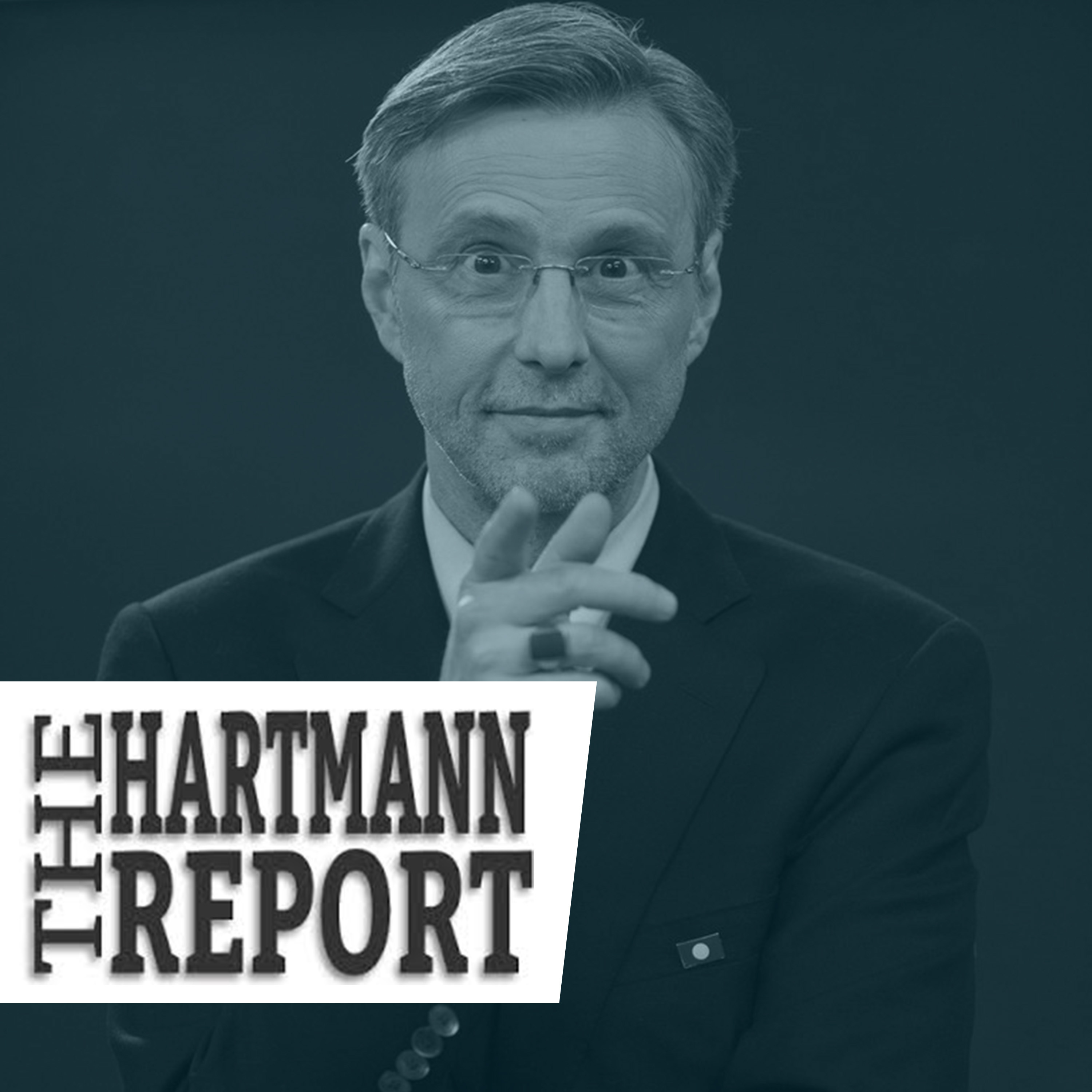
The Hartmann Report
Thom Hartmann
The Glenn Show
Glenn Loury
#RolandMartinUnfiltered
Roland S. Martin
Newt's World
Gingrich 360
Pod Save America
Crooked Media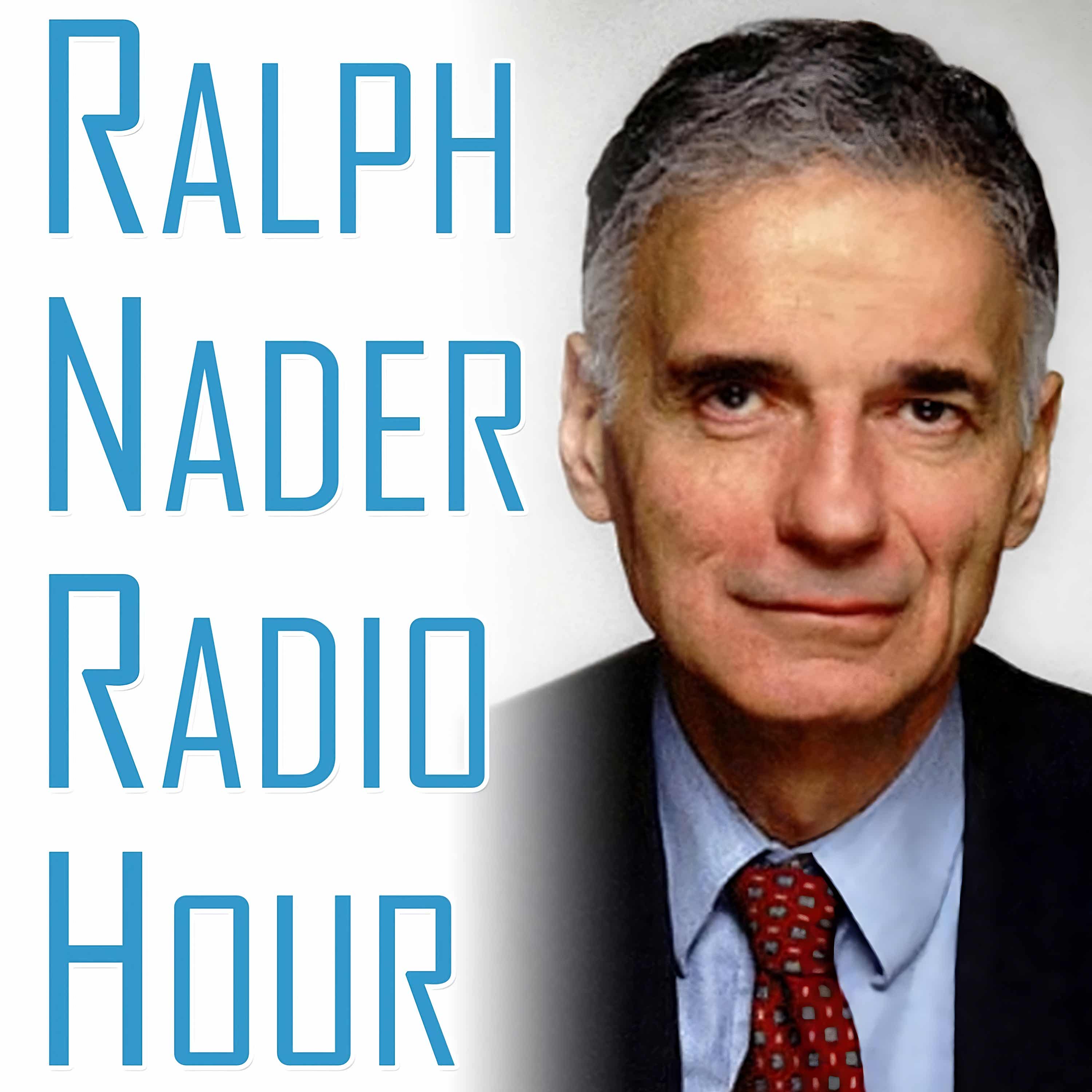
Ralph Nader Radio Hour
Ralph Nader
Bannon`s War Room
WarRoom.org
Bannon’s War Room
dan fleuette
The Young Turks
TYT Network
The Beat with Ari Melber
Ari Melber, MS NOW
The Damage Report with John Iadarola
TYT Network
The Majority Report with Sam Seder
Sam Seder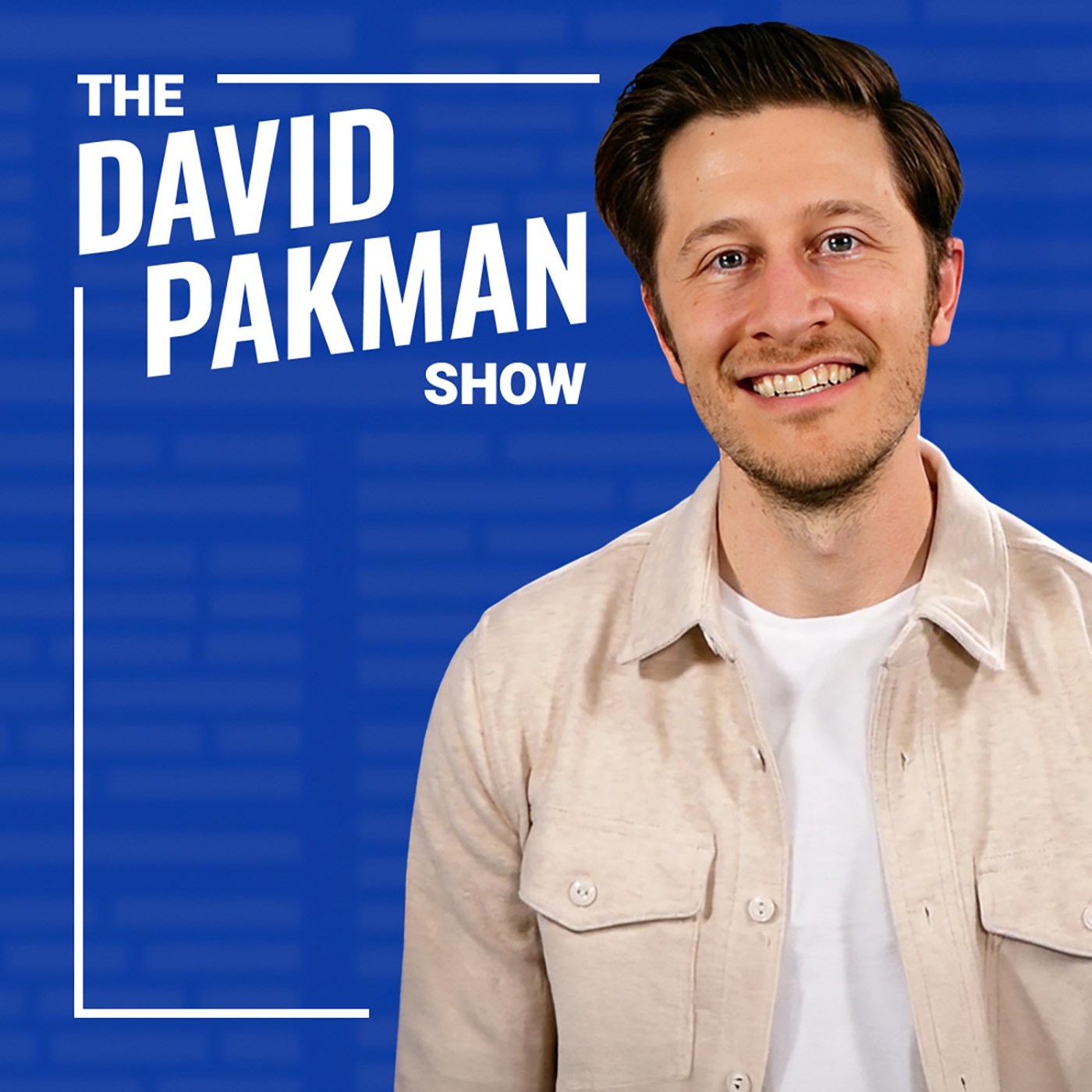
The David Pakman Show
David PakmanGet A Grip with Kendall Reusing
Kendall Reusing
Ultimately with R.C. Sproul
Ligonier Ministries
Grace to You: Radio Podcast
John MacArthur
The Briefing with Albert Mohler
R. Albert Mohler, Jr.
StarTalk Radio
Neil deGrasse Tyson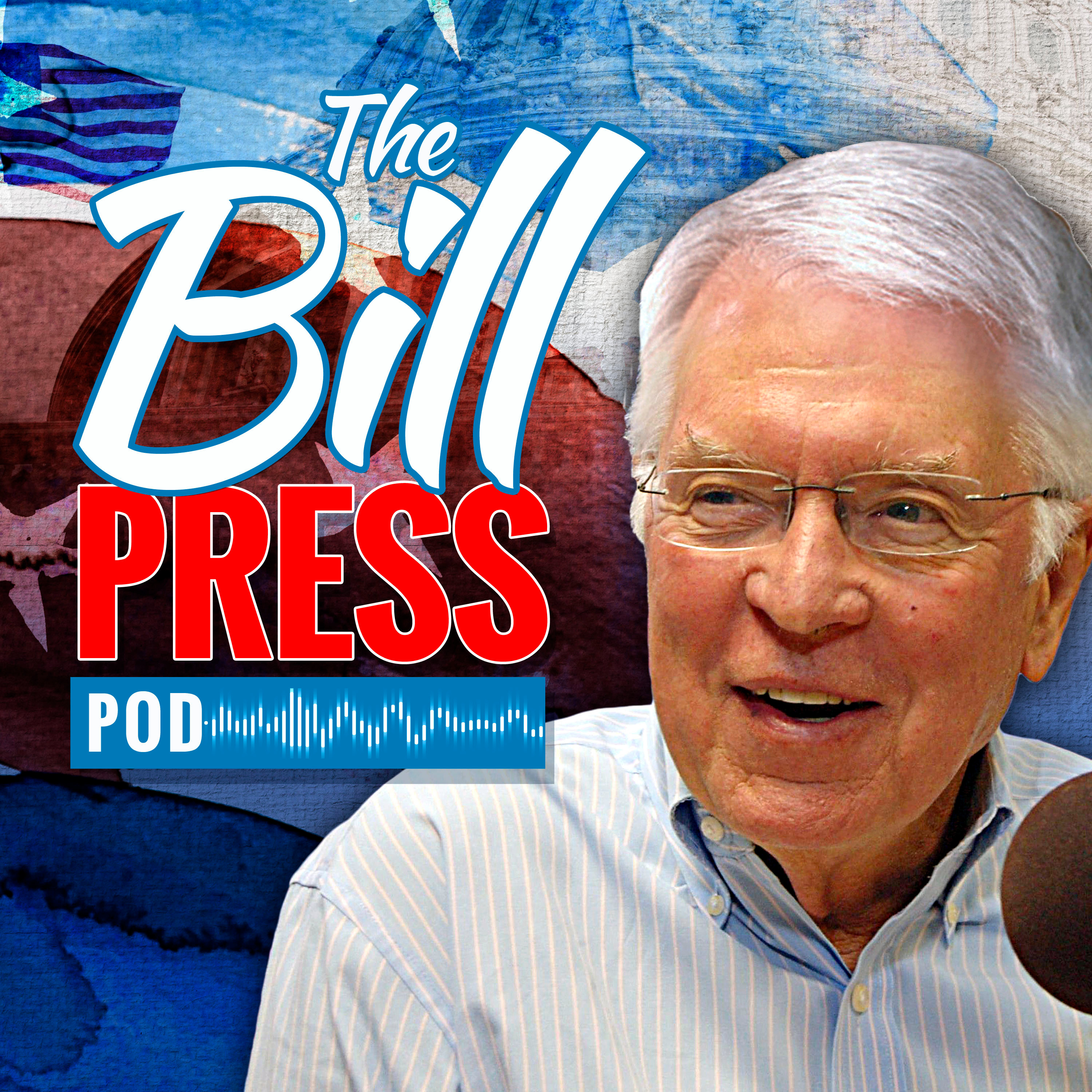
The Bill Press Pod
BP Pods
Ask Pastor John
Desiring God
The Weekly Show with Jon Stewart
Comedy Central
Ask Ligonier
Ligonier Ministries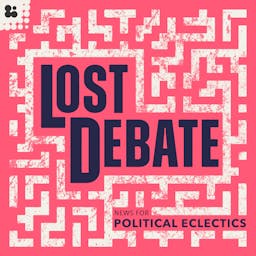
Lost Debate
The Branch
Coffee-Time-Again
Dale Hutchinson
5 Minutes in Church History with Stephen Nichols
Ligonier Ministries
The Ezra Klein Show
New York Times Opinion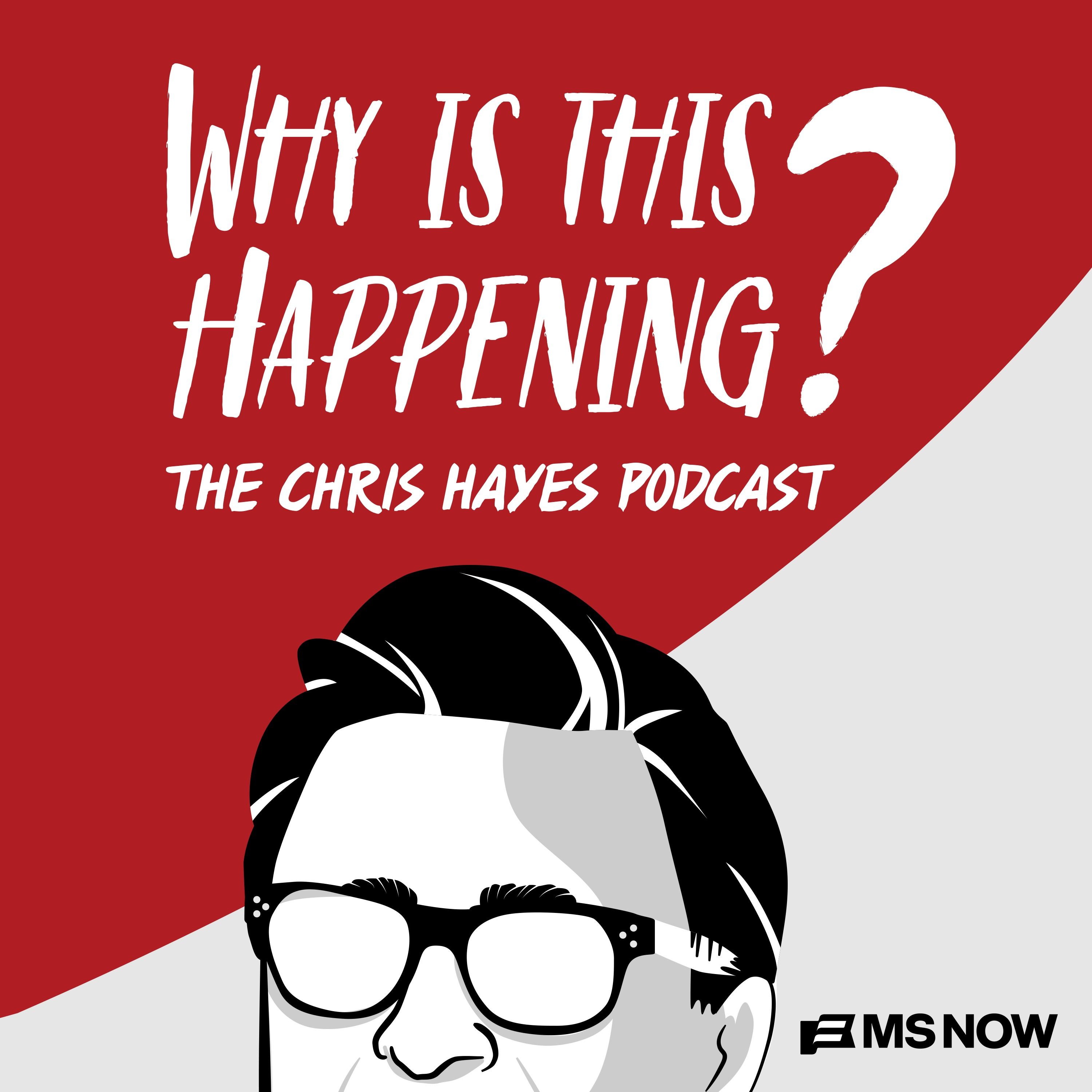
Why Is This Happening? The Chris Hayes Podcast
MS NOW, Chris Hayes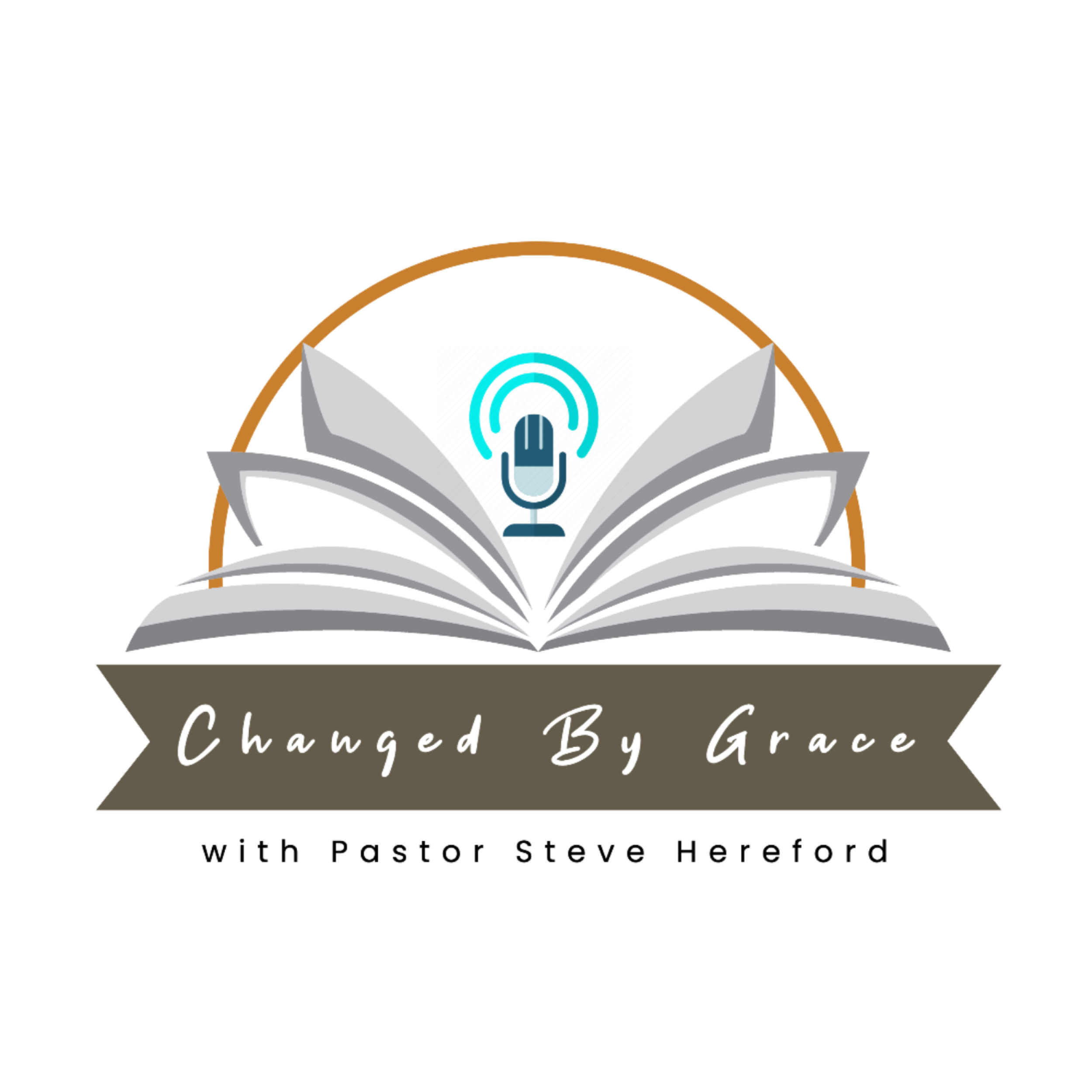
Changed By Grace
PodPoint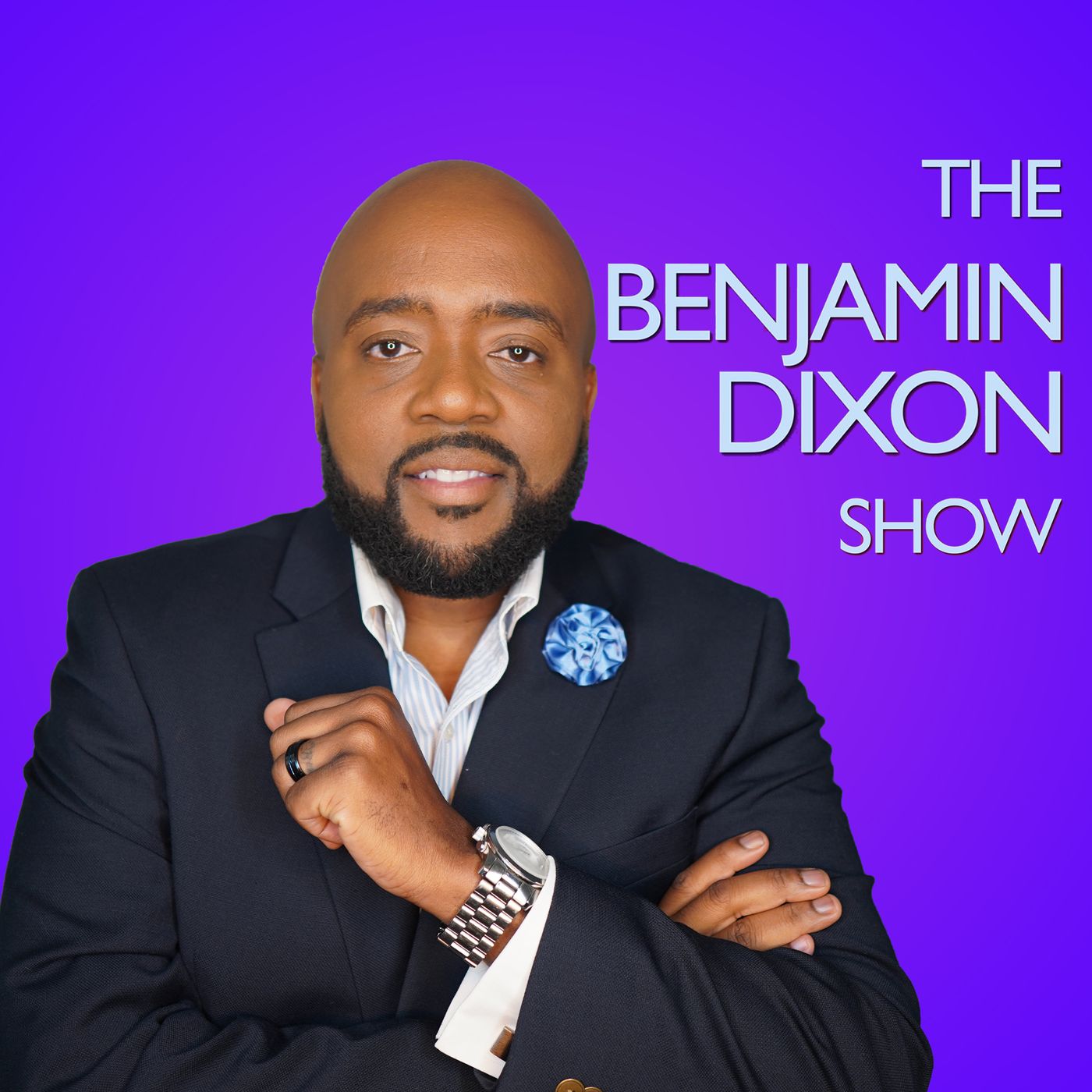
The Benjamin Dixon Show
The Benjamin Dixon Show
Thinking in Public with Albert Mohler
R. Albert Mohler, Jr.
Who Killed JFK?
iHeartPodcastsThe MacArthur Center Podcast
The Master's Seminary
Jean Jacques Machado : No Gi Required
Jay Zeballos
Trauma Bonding
Jamie Kilstein
This Day in History
The HISTORY Channel
The Ben Shapiro Show
The Daily Wire
The Sean Hannity Show
Sean Hannity
Breaking Points with Krystal and Saagar
iHeartPodcasts
The Kyle Kulinski Show
Kyle Kulinski